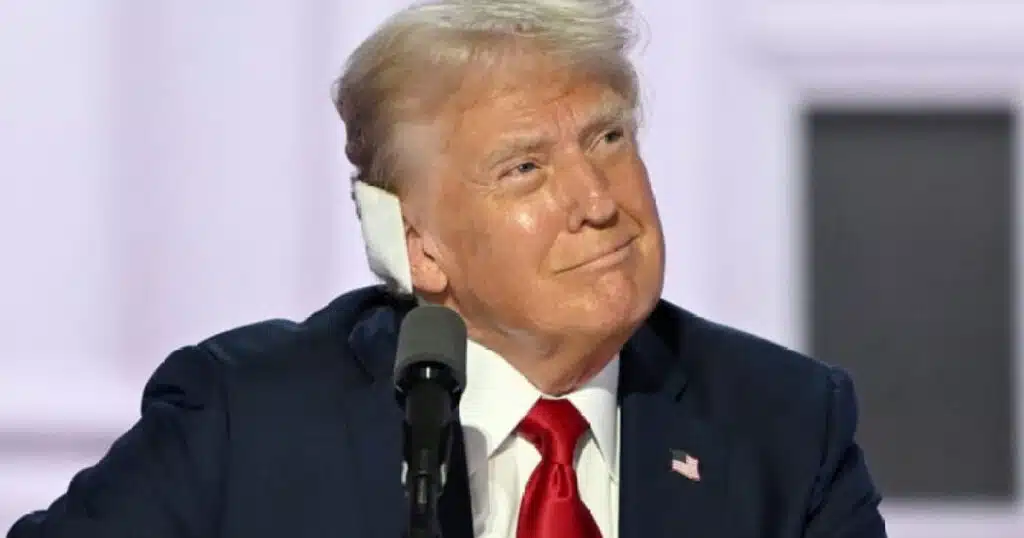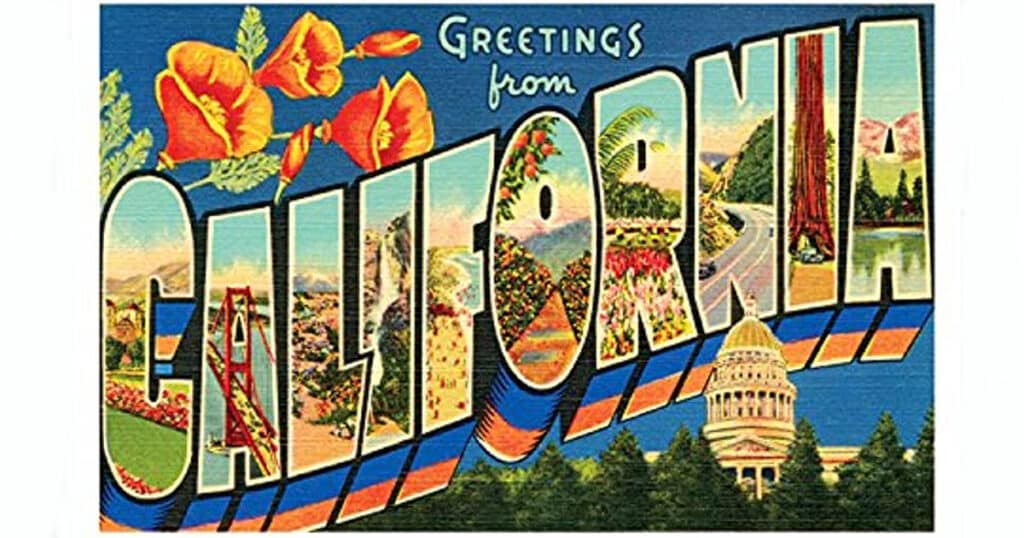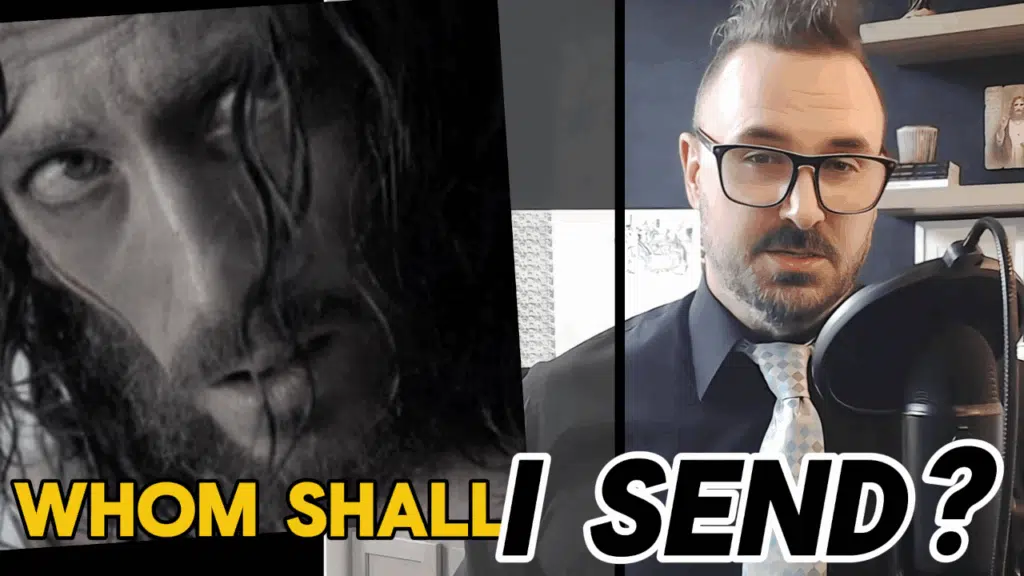
It Was A Great, Historic, And Way Too Long Speech
You’re going to hear all kinds of reactions to Donald Trump’s acceptance speech last night to close the Republican National Convention. I could include a bunch of them. I won’t bore you with any of that.
Instead I’ll just give you my analysis. And you can get mad at me if you want; I don’t care.
Here’s where I’m coming from: I don’t advertise it (well, I guess I’m advertising it now, but whatever), but I occasionally do speechwriting. I’ve done it for local, state and national candidates.
So I know a little about how political speeches work.
And I know a little about what a good victory speech – an acceptance speech at a convention, the speech a candidate gives on Election Night when he’s won the race, etc. – should look like.
But wait, McKay, you say. Let me stop you right there. You’re talking about Donald Trump and he’s a different character. The rules don’t apply to him.
Yes, yes. I’m allowing for that, but the fact is that however unique Trump might be the process that he’s in still has rules, and you can only break them so often before it becomes a negative.
So I’m going to explain why this was an A-minus of a speech, but not quite the A-plus that puts the race away. I don’t know if it’s really possible for Trump to have done that anyway, and I disagree with this notion that you’ll see around the internet, spread mostly by Democrats, that this speech breathed new life into Team Biden – or whatever might replace it.
But what I don’t disagree with is that Trump has the persistent problem of a ceiling on his support because there are so many people who just don’t like the abrasive, braggadocious real estate developer from Queens. Raising that ceiling requires being a little more anodyne and a lot more disciplined than his political brand calls for so that people who let objections to his style get in the way of voting for him due to his substance, which they do like, can make their peace with him and push him over the top.
Whether it’s Trump giving a speech like this, or somebody else, there are three parts to a victory speech. Those three are: (1) the personal narrative, (2) the challenge/mandate, and (3) the plan.
And the best examples of those victory speeches sit right at 30-45 minutes. Which I’m guessing was what Trump’s speech, as written, was planned to be last night.
He doubled that time allotment, or more, and didn’t end the speech until after midnight Eastern time, which is way too much ad libbing – especially when most of his ad libs didn’t move the story along.
As written, that was an A-plus speech. It was magnificent.
And the personal narrative part of the speech was magnificent.
In a victory speech, the personal narrative isn’t an introduction. By the time you’re giving this speech you can safely assume the folks already know who you are. J.D. Vance’s speech Wednesday night would have been a little different, for obvious reasons, and so as you could tell his personal narrative was considerably more autobiographical.
But in Trump’s case, he’s known. And the point of the personal narrative is “why.” Why are you there? Why are you the nominee, why did you just win the election, and so on.
Trump had the best “why” of all, and that’s what fueled the amazing, historical personal narrative part of the speech. He’s where he is because God put him there. But for God he’d be dead and as Michael Whatley, the RNC chair, said in a radio interview Thursday with Clay Travis and Buck Sexton they would probably have canceled the convention.
Trump recounted, blow by blow, the near-miss assassination attempt in Butler, Pennsylvania on Saturday that left him with a nicked ear and ended in three of his supporters seriously wounded – one of them, volunteer fire chief Corey Comperatore, fatally. Trump’s tribute to Comperatore was very moving; he showed beyond a doubt the strong emotional bond he has with his supporters, and the critics of the speech fail to, or refuse to, recognize the power there is in that.
And he talked about the $6 million he’s raised online for Comperatore’s family. I go back and forth a little about whether it would have been appropriate to expand on that as a piece of what a better America led by Donald Trump could be. That’s a message which actually needs spreading, because it’s fundamental to rolling back the Left’s assault on civil society (one of the core elements preventing a communist takeover, in the words of influential early 20th-century leftist intellectual Antonio Gramsci, is charity). But it might have come off as crass so soon after Comperatore’s death. But even as he left it, a viewer couldn’t possibly come away from hearing about that $6 million without understanding that despite all the awful things said about the MAGA movement it’s obviously made up of decent, loving people who help their neighbors and act for their community – something everybody knows we need more of. So that’s a big win.
Following the recitation of the assassination attempt, he’d established beyond a doubt that he’s the GOP nominee and the party’s standard bearer because it was meant to be – and everything he’s been through, all the adversity, slings and arrows, persecution and nastiness, has forged him into the man of the moment.
In a speech in the lead-up to Trump’s address, Tucker Carlson said that in that moment when he raised his fist and yelled “Fight!” to the crowd, Trump became more than a presidential candidate; he became a leader of a nation. That was a more explicit description of what Trump’s personal narrative was about, but Trump tends to be a bit less direct in speaking about himself than others in describing him.
The other two parts of the speech were less clear.
The challenge and mandate segment was essentially a recitation of how awful Joe Biden’s presidency has been, but it wasn’t a concise, fact-filled, devastating summation like it needed to be. That isn’t a fatal problem; Trump has three and a half months to prosecute the political case against Biden, or if Biden goes (he likely will) the Democrat Party, and that’s as effectively done in 30-second campaign ads as it is in speeches.
But Trump showed how he can effectively prosecute that case when he put up the illegal immigration chart on the big screen, and when he did he let out his best joke of the night…
Of course, that chart, which details how under Trump illegal immigration had fallen off to practically nothing due to his efforts at enforcing immigration laws and undeniably shows the flood of illegals into the country since Biden assumed office, was the one Trump was putting on display in Butler at the exact moment the assassin’s bullets were fired, and had Trump not turned his head to look at the chart while it was on a big screen somewhat behind him the bullet would have blown the back of his head off.
So that quip about how the chart saved his life wasn’t just his best joke of the night, it was the most effective moment of the speech. Trump made a big deal about the chart, it’s now an iconic piece of political imagery, and it just so happens that you can’t look at that chart and not realize the illegal immigration explosion which prevails before and after Trump’s presidency can’t possibly be an accident.
But then Trump launched into a long riff accusing leaders of Latin American countries of dumping their criminals on us, and while he didn’t mention El Salvador’s Nayyib Bukele by name he said Bukele has built his success on the back of exporting MS-13 gangsters to America. That isn’t actually what Bukele has done; he built massive prisons and threw all the MS-13 thugs in them.
Now, Venezuela is a different story, and Trump is right about that.
But he belabored the point, which could have been handled in a sentence or two, and the segment began to drag.
Advertisement
The other problem was that Trump is developing a bad habit of over-the-top hyperbole. Everything is either the best of all time or the worst ever, and when he says those things as often as he does it greatly weakens his presentation.
What would be better, and it would be wonderful if he’d do this though by now he’s unlikely to, is to back up his assertions with numbers. Don’t just say you had the greatest economy ever when you were president, throw out some numbers to back that up. Unemployment numbers for women and blacks and Hispanics, sure. But also, talk about what the average mortgage payment was in America in, say, January of 2020 before COVID disrupted everything, and compare it to now. You don’t have to talk about best ever/worst ever, just throw out the numbers. People will come to their own conclusions without the hyperbole.
So that part wasn’t great, and Trump needs to break out of that habit. It doesn’t hurt him when he’s running against Biden, but he’s not going to be running against Biden by the time the Democrats get part their convention from all current appearances.
Then there’s the “plan” part of the speech. What’s in it for the voters if Trump gets elected?
Here again, there wasn’t a lot of detail and way, way too much ad libbing. It was almost like Trump was bored with this part of the speech and didn’t want to talk about it. I thought that was a missed opportunity.
The “no tax on tips” piece is inspired, and his description of where he got it – it came from a waitress at Trump’s property in Las Vegas who was howling about the IRS’ hounding service industry employees about tips – was great. That’s a terrific little campaign promise which is targeted at people who fit perfectly in this electoral coalition Trump is building for the GOP. It’s a good way to wedge into the younger demographic as well, perhaps blunting the Democrats’ advantage in a core voting group.
But while I believe Trump can end the war in Ukraine even before he takes office, and I’m glad he didn’t explain why (the real reason is that the Biden administration is perpetuating that war for lots of reasons which are neither valorous nor moral), I can’t really endorse the “I can end wars with a phone call.” That comes off as arrogance, not a plan, and it wasn’t a good ad lib.
Trump had a lot of good material in the “plan.” His rejection of the Biden electric-vehicle mandates was terrific and it needed to be said. His attack on Shawn Fain, the lowlife president of the United Auto Workers who sold out his members to shill for EV’s despite the fact they’re a total disaster for employment in that sector, was a brilliant move – those members are furious at Fain and Trump’s attack on him isn’t, then, an attack on the union itself.
A key piece of GOP strategy in this election cycle needs to be separating private-sector trade unions like the UAW and the Teamsters and the International Brotherhood of Electrical Workers from the public-sector unions like the American Federation of Teachers and Service Employees International Union. The latter group actually need to be put out of business; public sector unions are the backbone of the Democrat Party and they’re utterly communistic and woke at this point; the nation can’t get to the American revival we need with these people in the way.
But to make it politically possible, you’ve got to get the trade unions away from AFT and SEIU and the others. I think Trump did some good in that respect last night, and he also moved the needle (I expect) in Rust Belt states like Wisconsin and Michigan with the approach at this convention.
And it should be possible, because all of the reasons why economic conservatives and unions might not mesh well aside, both groups should be able to agree that climate change nuttery and the tax and regulatory orgy which goes with it has the effect of stultifying and destroying an economy. The union people are also mostly socially conservative, so the various sexual agendas the Left has imposed on the Democrats don’t work for them and the open-borders immigration policy, complete with its implosion of wages, is a dead letter.
The other problem is that by the time Trump got to the plan, he’d gone on too long already. Lots of people had given up and gone to bed. That’s the cost of spending so much time off script.
There was a ton of good in the speech. Like I said, as written it’s as good a speech as there is. And we should grade Trump on a curve here; this was an address delivered five days after he’d been shot giving a campaign speech. The joke was that Trump wasn’t able to give his Butler speech in full, so he was making up time.
But it could have been better. Trump’s speech might actually have been a little bit of a drag on the convention as a whole; this was the best-run and most successful party convention I’ve seen, and I’ve been following them pretty intently since working in the 1988 RNC in New Orleans. That isn’t an attack on the speech so much as a judgment on the convention.
But about two-thirds less ad-libbing, and bringing it home before midnight Eastern time, and the haters on the Left would have nothing at all to say. In what was potentially a crushing blow, Trump didn’t quite get there.



